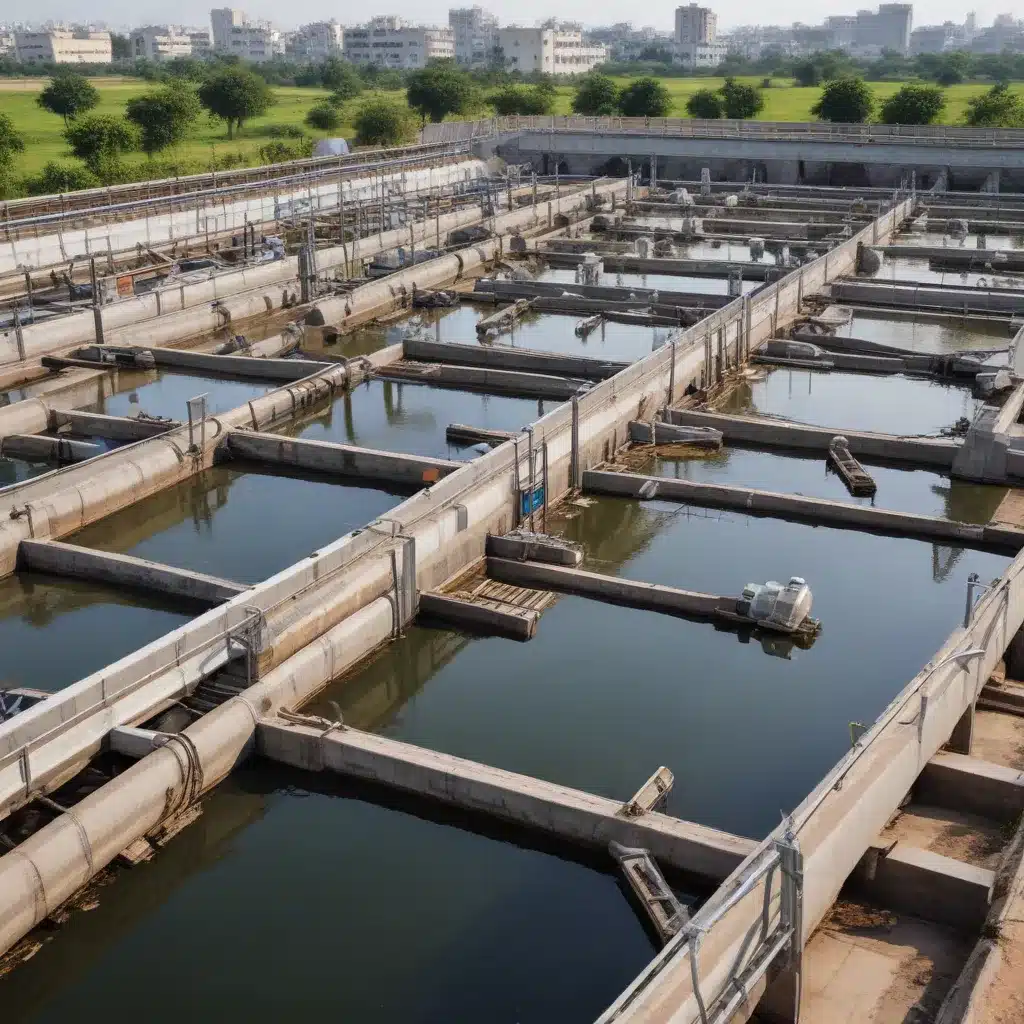
Harnessing the Potential of Urban Water Reclamation
As cities across the globe grapple with the escalating pressures of population growth, industrialization, and climate change, the need for sustainable water management has never been more pressing. Hyderabad, the vibrant capital of India’s Telangana state, stands at the forefront of this challenge, pioneering innovative solutions to transform its wastewater into a valuable resource.
Confronting Urban Water Scarcity
Hyderabad, home to over 10 million people, faces a daunting reality – a rapidly growing population coupled with limited freshwater resources. Traditional water sources, such as surface reservoirs and groundwater, have struggled to keep pace with the city’s insatiable demand. The situation is exacerbated by the impacts of climate change, which have contributed to erratic rainfall patterns and prolonged droughts, further straining the available water supply.
In the face of these challenges, Hyderabad has recognized the need to explore alternative water sources. The city’s leaders have embraced the concept of “water reuse” – the process of treating and repurposing wastewater for beneficial applications, such as irrigation, industrial use, and even potable water supply.
Pioneering Wastewater Treatment Initiatives
Hyderabad’s journey towards sustainable water management began with the establishment of the Hyderabad Metropolitan Water Supply and Sewerage Board (HMWSSB). This specialized agency has spearheaded the city’s wastewater treatment and reuse initiatives, employing a multi-pronged approach to address the complex water challenges.
One of the flagship projects is the Amberpet Sewage Treatment Plant (STP), the largest of its kind in Asia. This state-of-the-art facility utilizes advanced technologies, including membrane bioreactors and reverse osmosis, to treat up to 240 million liters of wastewater per day. The treated water is then distributed for various non-potable applications, such as industrial cooling, landscaping, and groundwater recharge.
To further expand the city’s water reuse capabilities, Hyderabad has invested in a network of decentralized STPs strategically located throughout the municipality. These smaller, localized treatment plants not only reduce the burden on the centralized system but also minimize the energy and infrastructure required for water conveyance. The treated water from these decentralized STPs is primarily used for irrigation, supporting the city’s thriving urban farming initiatives.
Fostering Community Engagement and Advocacy
Recognizing that the success of its water reuse initiatives depends on public acceptance and participation, Hyderabad has placed a strong emphasis on community engagement and advocacy.
The HMWSSB has implemented extensive public awareness campaigns, educating citizens about the importance of water conservation, the environmental benefits of wastewater reuse, and the safety of the treated water. These efforts have helped to dispel misconceptions and foster a sense of collective responsibility for the city’s water management.
Furthermore, the city has actively engaged with local stakeholders, community organizations, and environmental advocates to gather feedback, address concerns, and incorporate their perspectives into the design and implementation of its water reuse programs. This collaborative approach has not only built trust but also empowered the community to become active partners in the city’s water sustainability efforts.
Leveraging Cutting-Edge Technologies
Hyderabad’s wastewater treatment and reuse initiatives are underpinned by the strategic deployment of innovative technologies. The city has embraced digital transformation to enhance the efficiency and effectiveness of its water management systems.
The integration of Internet of Things (IoT) sensors and real-time data analytics enables the HMWSSB to monitor water quality, detect leaks, and optimize the performance of its treatment facilities. This data-driven approach allows the city to make informed decisions, respond to evolving needs, and continuously improve its water reuse operations.
Furthermore, Hyderabad has explored the potential of artificial intelligence (AI) and machine learning to forecast water demand, model the impacts of climate change, and optimize the allocation of water resources. These advanced technologies not only improve the city’s water resilience but also provide valuable insights for long-term planning and policy development.
Collaborative Partnerships for Sustainable Water Management
Hyderabad recognizes that addressing the complex challenges of urban water scarcity requires a collaborative approach. The city has actively sought partnerships with research institutions, technology companies, and international organizations to leverage the latest innovations and best practices in water management.
One such partnership is with the International Water Management Institute (IWMI), a global research organization dedicated to sustainable water solutions. Together, they have explored the potential of decentralized wastewater treatment systems, aquifer recharge, and nature-based solutions to enhance the city’s water security and environmental resilience.
Additionally, Hyderabad has participated in the 100 Resilient Cities initiative, a global network of cities committed to building urban resilience. Through this platform, the city has shared its experiences, learned from the successes of its peers, and collaborated on developing comprehensive strategies to address water-related challenges.
Toward a Sustainable and Resilient Future
Hyderabad’s journey in transforming its wastewater into a valuable resource is a testament to the power of innovation, community engagement, and collaborative partnerships. By embracing a holistic approach to water management, the city has not only addressed its immediate water scarcity concerns but also laid the foundation for a more sustainable and resilient future.
As other cities around the world grapple with similar water-related challenges, Hyderabad’s experiences offer valuable lessons and inspiration. By following the city’s lead and harnessing the potential of wastewater reuse, communities can unlock new opportunities for water security, environmental protection, and economic development.
At the Joint Action for Water blog, we are committed to sharing these success stories and empowering communities to take bold steps towards a water-secure future. Join us in celebrating Hyderabad’s achievements and exploring the transformative power of urban water reclamation.

